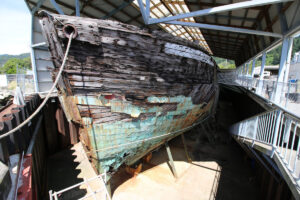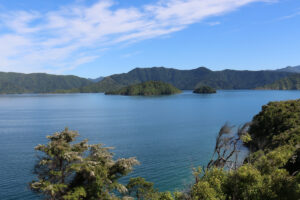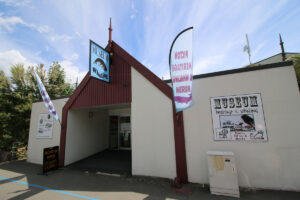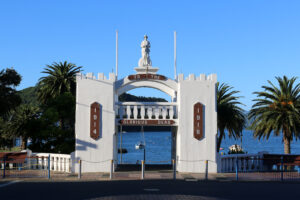The Edwin Fox Maritime Museum houses what is said to be the “oldest merchant sailing ship still afloat.” The vessel, built in 1853 in India, transported immigrants to New Zealand and Australia and is the only remaining ship that brought convicts to Australia. After its sailing days, the boat was used in the 1880s as a floating freezer and later as a coal store hulk. In about 1950, the Edwin Fox was left to rot on its moorings, but preserved as a museum piece.
Surrounded by water and with cliffs dropping to the water, Karaka Point was the perfect location for a fortified pa (fort). The location provided the Māori an ideal location to monitor what is today known as Queen Charlotte Sound — first known as Totaranui — for potential invaders. The area was initially named Te Rae o Te Karaka after the Ngati Chief Te Karaka; he settled there during the early 1700s. Today, it offers a stunning vista of Queen Charlotte Sound, formed an estimated 280 million years ago. The park includes historic earthworks, and whare (house) pits that likely date to the early 1700s.
The small, but packed Picton Heritage & Whaling Museum is home to more than 2,000 artifacts that help tell the area’s history, including its strong roots in the whaling industry. While the museum has been around for 60 years, its current home on London Quay was built in 1990 on the site of Waitohi Pa.
World War I helped define New Zealand as a country. As a result, many towns across New Zealand feature monuments to the Great War, and Picton is no different. The monument in Picton was dedicated in 1925 and includes the names of 31 soldiers from the town who died during the War to End All Wars. Additions were added to the memorial to honor additional 20th century conflicts, including World War II and the Vietnam War.




